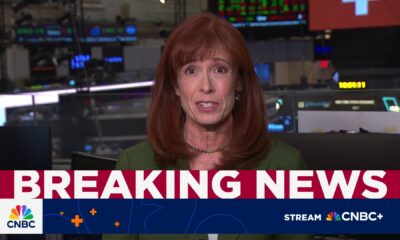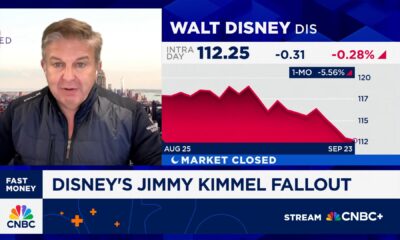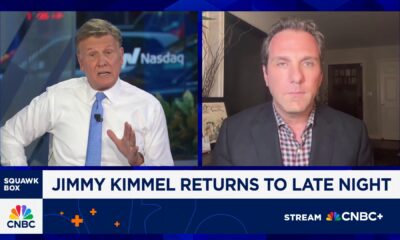Opinion
On Climate Change, the Market Is Wrong Again
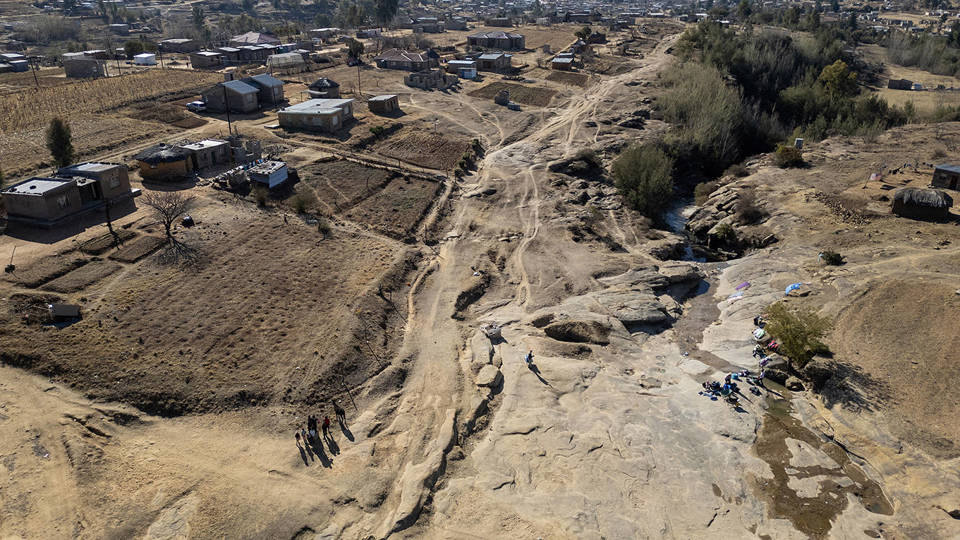
Read more on post.
GENEVA – As business, government, and nonprofit leaders debate the future of climate action ahead of the United Nations Climate Change Conference (COP30) in Brazil, the global economy remains vulnerable to acute and chronic climate-driven shocks whose impact could be more severe than that of the 2008 global financial crisis. At a time when many governments and businesses continue to underestimate and underprice physical climate risk, we must remember that neither financial markets nor regulators are always right. What if their current complacency about climate risks is catastrophically wrong?
The 2008 financial crisis and its aftermath showed how fast our expectations can be shattered. In the mid-2000s, deregulation and simplification were the norm: balance sheets were run thin, and profits and losses ran high. Financial engineering boomed as risks were packaged, diluted, and obfuscated, and as credit was given where it hadn’t been earned.
In the face of all this, expressions of concern were drowned out by the din of transactions. But the signs were there. The fundamentals were not right.
By late 2008, the global economy was teetering on the brink of collapse. In the space of days, longstanding banking giants were swept away. Only government bailouts prevented the entire financial system from melting down.
The post-crisis banking sector looks very different than the one that preceded it. Owing to tougher rules and tighter oversight, good governance and resilience restored trust in the banking sector. Long-term investors – pension funds and insurance companies – patiently endured years of expensive recovery before value was restored and dividends resumed. If the banks had gone, so, too, would those holdings, and most of today’s financial system with them.
The post-crisis era was marked by collective humility and acceptance of systemic risk. This was reflected in the Financial Stability Board’s recognition in 2015 of climate change as perhaps the greatest systemic threat of all.
The Green Development Agenda
PS Events: The Green Development Agenda
Catch up on the discussions from our Climate Week NYC event. Watch global leaders and experts weigh in on the future of multilateralism, the new development economics, and the most effective levers of change.
Ten years later, however, our systems and processes remain ill-equipped to measure and manage the systemic risks posed by climate change. With the focus on climate issues slipping down investors’ agendas, this is a dangerous lapse. From broken supply chains and damaged assets to infrastructure shocks, public health crises, and community disruption, many businesses are already feeling the profound impact of climate change.
Nor is the problem confined to headline-grabbing disasters. Subtle, chronic effects are quietly eroding value, often in ways that our systems are ill-equipped to detect or manage. Once again, the fundamentals are not right.
Data from NASA underscores this point. US satellites show that the intensity of extreme weather events is now double the average recorded in the 2003-20 period. This trend has tragic consequences for human well-being. In Africa, for example, 23 million people faced acute hunger in 2023, owing to record droughts.
The global economy is also taking a beating. Research by the World Economic Forum finds that weather-related damage to businesses, infrastructure, and other fixed assets may have almost tripled since 2000. The bill for the last decade topped $2 trillion, with costs in 2022-23 alone reaching $451 billion.
Yet rather than take steps to mitigate these risks, many investors, corporations, and governments continue to incentivize activities that compound them. Leading companies must battle to convince their boards and investors to buy into forward-looking strategies. Banks – the traditional stewards of opportunity – are struggling to manage lending risk associated with new and emerging technologies. The business case for pre-emptive resilience and innovation just isn’t clear enough to overcome the allure of the status quo. In other words, markets are getting things very wrong once again.
One exception is the insurance industry. Experts at pricing risk, these firms are learning fast. Between 2023-24, climate-related disasters forced insurers to shell out $143 billion in claims payments. More and more of them are doing the math and concluding that climate coverage simply doesn’t add up. They must either hike premiums to exorbitant levels or exit the disaster-risk market altogether.
The latter scenario is all too likely. Günther Thallinger, a board member at the global insurer Allianz, recently warned that: “entire regions are becoming uninsurable” as key asset classes degrade “in real time.” If markets haven’t realized this, that is because it takes time to work through the system.
The parallels to past crises are clear. Again, expressions of concern are being drowned out. This time, though, the stakes are higher, the effects are more widespread, and the consequences will be irreversible. The global economy has a massive blind spot, and unlike in 2008, there is no one on the winning side of the short bet. We all will lose.
Of course, there is a difference between a systemic blind spot and an ordinary one. We know the spot is there, but our financial system cannot address it until it is translated into monetary terms. For this, we need to mobilize executive action across the private sector to improve how we measure, manage, and respond to climate risks. Working with capital providers, standard setters, and policymakers, we need to align actionable information with the need to allocate capital toward climate-change mitigation and adaptation.
But having the numbers is not enough. To paraphrase Ernest Hemingway, climate collapse is a process that happens slowly, then all at once. Businesses and investors must create and maintain the capacity for rapid change within our organizations and across our value chains and spheres of influence. This starts with humility and acceptance of systemic risk.
The 2008 financial crisis shocked the world and demonstrated that nothing can be taken for granted. The stakes now are far higher, and there can be no bailouts. We must pursue pre-emptive action, and we must do it immediately.
Opinion
Elizabeth Gilbert’s memoir has raised eyebrows – but she always comes out on top | Emma Brockes
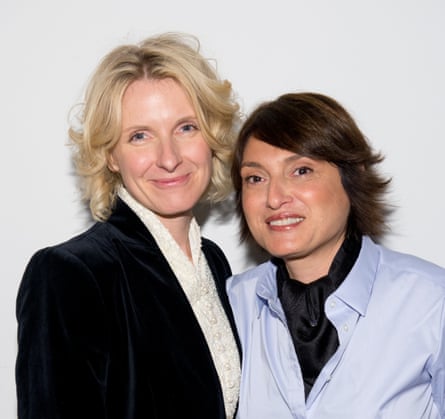
Read more on post.
If you are someone who reads multiple news sources a day, a fun way to occasionally spend your time over the last few weeks would have been to watch how critics and commentators have grappled with a hard problem. It is not, admittedly, as hard as the problem of grappling with consciousness. But it is hard enough that the famous assurance by Glennon Doyle, lifestyle coach and thought leader, that “we can do hard things,” remains relevant. I am talking about the problem of how we talk about All the Way to the River, Elizabeth Gilbert’s new memoir – specifically, how to be kinder and more measured about it than the book really deserves.
As you may know if you are one of the 30 million people who bought Eat Pray Love, one of the tens of millions who have read Big Magic or one of her other novels, or simply one of her 1.2 million followers on Instagram, Gilbert recently published a memoir that tells the story of the final years of Rayya Elias, a 57-year-old hair stylist who died of cancer in 2018. This was the woman for whom Gilbert left her husband – the one she met in Bali at the end of the first memoir – and with whom she descended into a drug-addled nightmare after Elias’s diagnosis. It is a horrific tale, one in which Gilbert watches, sometimes helpless, sometimes enabling, as Elias spirals into paranoia and addiction and drags the boundary-less Gilbert down with her. It is also an awesomely, breathtakingly, jaw-droppingly bad book.
Even the most successful authors can misfire, and All the Way to the River would be unremarkable if it weren’t for the fact that, to date, Gilbert’s instincts have always been so on the money. In terms of writing, she is vastly more talented than most operators in the female-empowerment space – the ones who tell us to be vulnerable, and the ones who advise us that the main thing is to have “grit” and the ones who assure us we can do hard things. Gilbert has never quite fitted into this crowd, partly because she has a writing career beyond grifty self-help, and partly because she has always seemed to me to be a much harder-nosed and more interesting figure than those gals.
Big Magic, which counselled readers on how to have a creative life (and, by implication, how to become Liz Gilbert), is a perfectly wise book. Eat Pray Love is a pitch-perfect romcom. And while stylistically Gilbert can be as winsome as the next woman selling self-love, I’ve always been interested in the fact that she is about the only superstar creator of female inspo-content who doesn’t have children – not only that, but is matter-of-fact about never having wanted them. You have to tip your hat to Liz Gilbert, the woman is an absolute tank.
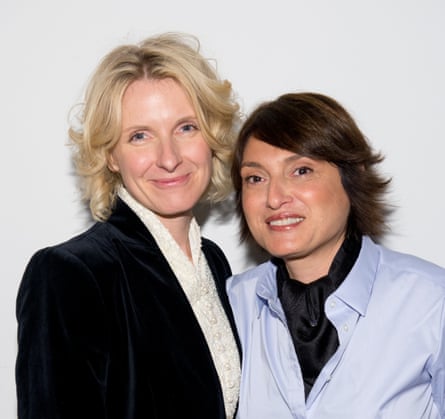
I mention all this because All the Way to the River, which opens with a long, imagined address to Gilbert by the late Elias and includes a claim by Gilbert that she is channelling the spirit of Elias’s dead mother (“my soul left my body so Georgette could be alone with her girl”), has proved hard to review, mainly, I suspect, because the author has so much goodwill in the bank. The phrase “raw honesty” gets a lot of outings, as does “bravery”, the word you use for a book you hated but is about painful things you feel guilty about trashing. This newspaper called the memoir a “solipsistic mess”, but also, “moving”, while the New York Times called it “excruciating”, then quickly stood down and settled on the quieter critique, “earnest, vulnerable but ultimately quite corny”.
For the author herself, the issue might have been one of what happens when you are your own source of material and that material starts to run thin. In the past, Gilbert has been quite honest about how calculating she is in her search for material. In her 20s, for example, she got a job at the grunge bar Coyote Ugly in downtown New York precisely so she could write about it. (The experience became a long magazine piece in GQ, then a movie.) There’s nothing wrong with that, it’s what hacks do and she is better at it than anyone.
This time, Gilbert seems to have gone a step further. When she met Rayya, Gilbert describes herself in the book as looking like a “sales clerk at Banana Republic”. Seven years after Rayya’s death and the author is pictured everywhere in a sleeveless jumpsuit, hair shaven, skin pierced and tattooed, a style she admits she picked up from her late girlfriend and that makes her many degrees better dressed than she used to be. But to this lesbian’s eyes it’s an odd piece of appropriation that on a latterly straight woman with a wardrobe from Banana Republic looks like someone who has shown up to Halloween in a lesbian costume.
The tribute is, I’m sure, lovingly intended, but from the outside it looks like cosplay and seems to me at odds with Gilbert’s steely persona. On the other hand, the book went straight in at number two on the New York Times chart this month, so – and I mean this – not only good luck to her, but perhaps as usual, she knows precisely what she is doing.
after newsletter promotion
-
Emma Brockes is a Guardian columnist
-
Do you have an opinion on the issues raised in this article? If you would like to submit a response of up to 300 words by email to be considered for publication in our letters section, please click here.
Opinion
Letter: John Stapleton obituary
Read more on post.

John Stapleton was a fearless reporter as well as a silver-tongued studio presenter. We worked together in the mid-1980s on three full-length documentaries for BBC Two.
Two of them concerned Paul Cleeland, one of the UK’s then longest serving prisoners. He maintained that his conviction for a murder committed in 1972 was a miscarriage of justice.
The third, The Perfect Diet?, was an investigation into controversial very low calorie diets – VLCDs – that ended in a high court battle to beat off an injunction. We interviewed the inventor of one of the diets, and John agreed to take a softy softly approach at the start of the interview. The camera rolled, and John asked his first question: “Now tell me, is it true your diet is killing some people?”
Opinion
Trump’s Effort to Pick America’s Corporate Winners Will End Badly
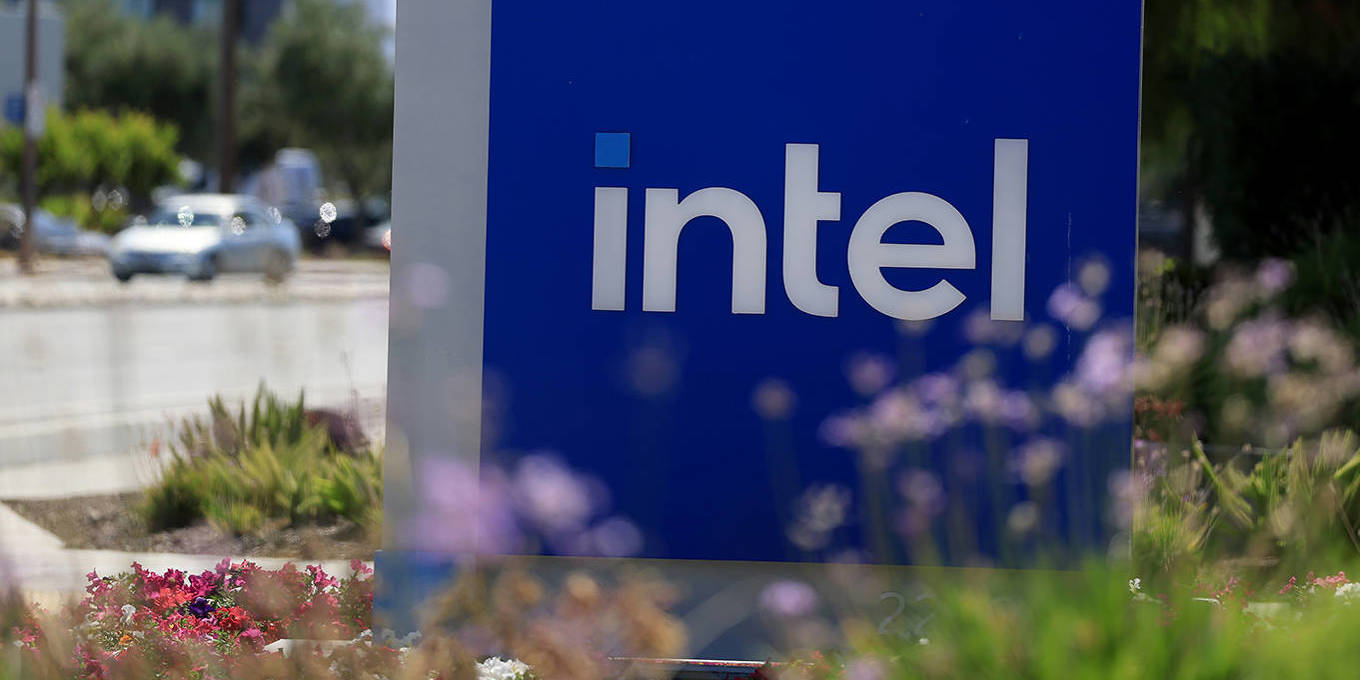
Read more on post.
SEOUL – For at least the last 150 years, state intervention in picking individual industries and firms to support has been shown to undermine productivity and weaken economic performance. When political considerations outweigh sound commercial judgment, companies may be compelled to keep unprofitable factories open, maintain loss-making activities, favor government-owned suppliers over private vendors, or appoint unqualified but politically connected individuals to leadership positions.
-
Breaking News1 day ago
Barack Obama to be conferred with freedom of Dublin at ceremony on Thursday
-
Culture1 day ago
Taylor Swift’s new cinema outing generates more than €12million in just 24 hours
-
Breaking News1 day ago
Opinion: To be or not to be? Why it is time to drop Shakespeare’s compulsory status in Leaving Cert
-
Breaking News1 day ago
Minister rejects proposal to make Shakespeare optional in Leaving Cert English
-
Breaking News1 day ago
Families at risk of homelessness may have another chance to avail of tenant-in-situ scheme
-
Politics1 day ago
European Parliament snubs Orbán with vote to shield Italian MEP from Hungarian arrest
-
Culture1 day ago
Milan Fashion Week 2025: Unmissable shows and Giorgio Armani in mind
-
Travel & Lifestyle2 days ago
The Best Way to See Rome? On a Running Tour at Sunrise



